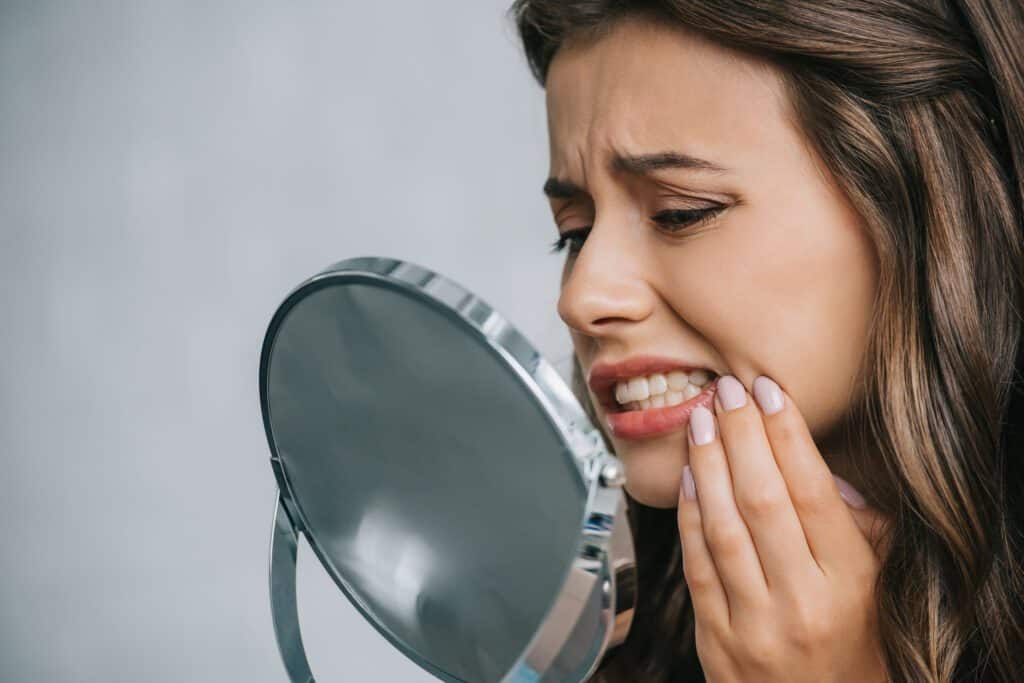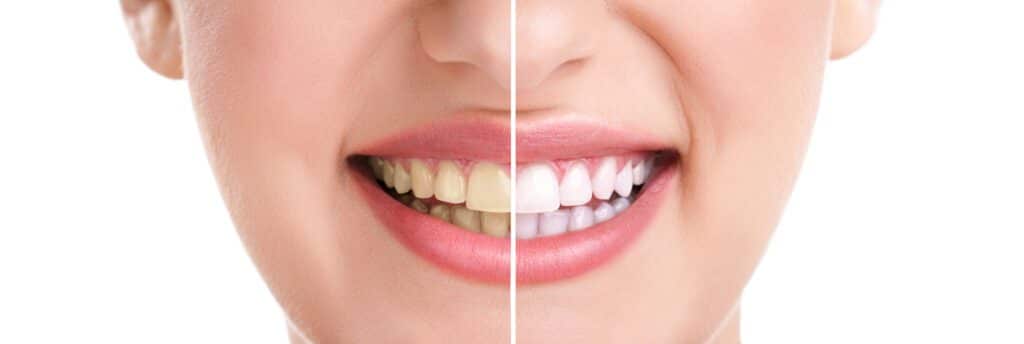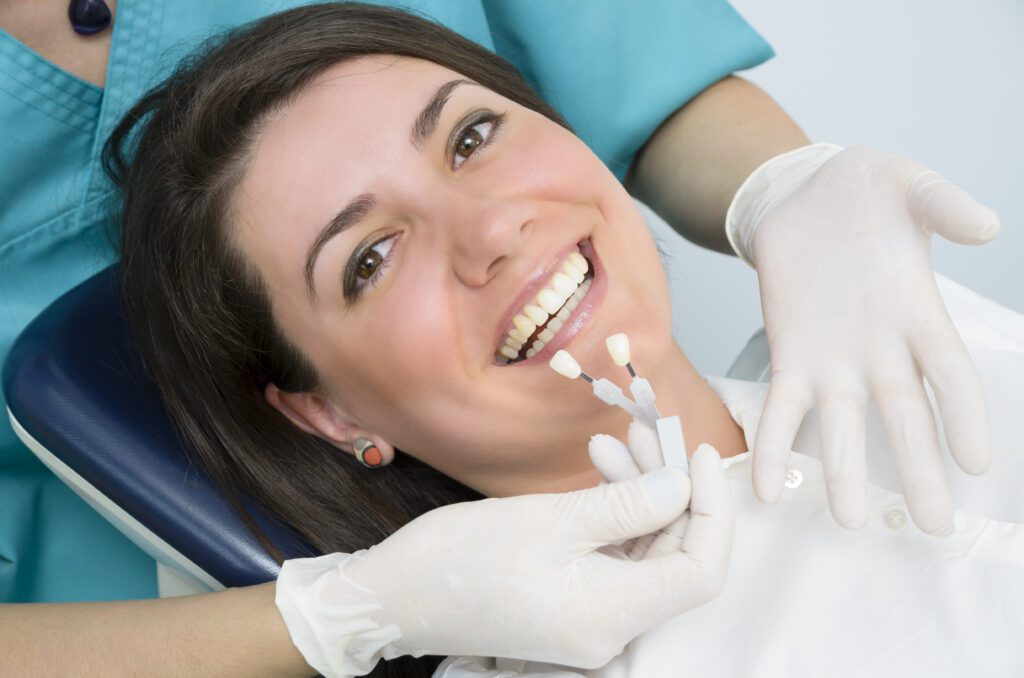Especially in the United States, we put a lot of value on a sparkling white movie star smile. But are white teeth really an indication of better oral health? Are teeth naturally white or does the effect have to be created? If finding out will help you love your smile, keep reading.

Are Teeth Naturally White?
To answer this question, it is important that we first go over the structure of teeth. Teeth are a complicated system of pulp, other tissues, dentin, nerves, and blood vessels. In the very center is the pulp, which nourishes the tooth and houses the nerves. The next layer is called dentin, which is naturally yellow. Dentin’s primary role is to support the tooth and give it structure. The outermost layer of a tooth is called enamel. This white and shiny layer is hard to protect the rest of the tooth.
The exact shade of each of these layers and their thickness is determined by a person’s genetic code. For some people, the layer of enamel is thinner or more translucent than others, and so their teeth naturally appear more yellow. This is no indication of poor dental hygiene or unhealthy teeth. It is simply another proof that every person is unique.

Do Teeth Naturally Go Yellow?
That being said, there are certain factors that can speed up the yellowing process. The most general is aging. Over the course of a person’s life, the natural wear of time and use breaks down a tooth’s enamel or causes it to thin, and more of the yellow dentin layer shows through. This makes teeth naturally look more yellow or cream.
Regardless of age or even of genetics, certain lifestyle choices will hasten the discoloration of teeth. Some of these work by wearing down the enamel, and others actually stain the surface of teeth. We’ll briefly look at some of the more common causes of teeth discoloration.
- Activated charcoal—Though commonly used as a teeth whitening agent, activated charcoal can actually wear through enamel, exposing the dentin layer underneath. Look for brushing solutions that don’t include activated charcoal.
- Bruxism—Bruxism, the technical term from grinding your teeth, can lead to tooth yellowing because it wears down enamel more rapidly than is natural.
- Brushing too vigorously—Be gentle with your teeth to avoid wearing down the white enamel layer. You should also consider brushing with a toothbrush with soft bristles as opposed to very firm ones.
- Candy—Candy is a magnet for enamel-munching bacteria. Be wise in the amounts you consume and always make cleaning your teeth a priority afterwards.
- Citrus, balsamic vinegar, and tomatoes—These foods (and others like them) are bursting with citric and acetic acid. Unless you can eat them without any of the food touching your teeth, the natural acids in them can erode away enamel.
- Coffee, wine, tea, and dark-colored sodas—Even your drinks pose a threat, though not always in the same way. The carbonic acid in sodas have the same corrosive properties as other acids, but dark sodas and the other drinks on this list are particularly bad for white teeth because they cause deep staining.
- Lemon juice & baking soda—Both Lemon juice and baking soda are also commonly used DIY teeth whitening solutions. Unfortunately, their corrosive properties hasten the thinning of enamel.
- Chewing tobacco and smoking—Both chewing tobacco and smoking can lead to teeth yellowing, but the risks of gum disease and oral cancer are far more serious.
- Plaque—Plaque forms on teeth naturally, but when it accumulates it can eat away at a tooth’s protective enamel and cause yellowing and even tooth decay.
A common myth is that braces cause rapid yellowing of teeth naturally. In and of themselves, braces do not alter the color of teeth. Braces can, however, trap bacteria in difficult to reach places, and that bacteria can lead to discoloration or more serious problems. If you have braces, make sure your dental hygiene regimen is thorough, brushing very well and visiting the dentist often.

The Trick to Whiter Teeth
While nothing can be done to change a person’s genetic code, there are some resources available to help make teeth appear whiter. We do not recommend DIY tooth whitening methods, as they pose many major risks to oral health. Instead, consider the following lifestyle changes:
- Quit smoking
- Drink plenty of water, especially with staining foods and drinks
- Cut back on the foods and drinks you consume that lead to damage and discoloration
- Use a soft-bristled toothbrush to clean your teeth, tongue, and gums at least twice a day
- If you grind your teeth, speak to your dentist about getting a nightguard
To proactively work toward whiter teeth, consider professional teeth whitening services or even veneers. These safe alternatives can help you achieve a smile that you can be proud of.
